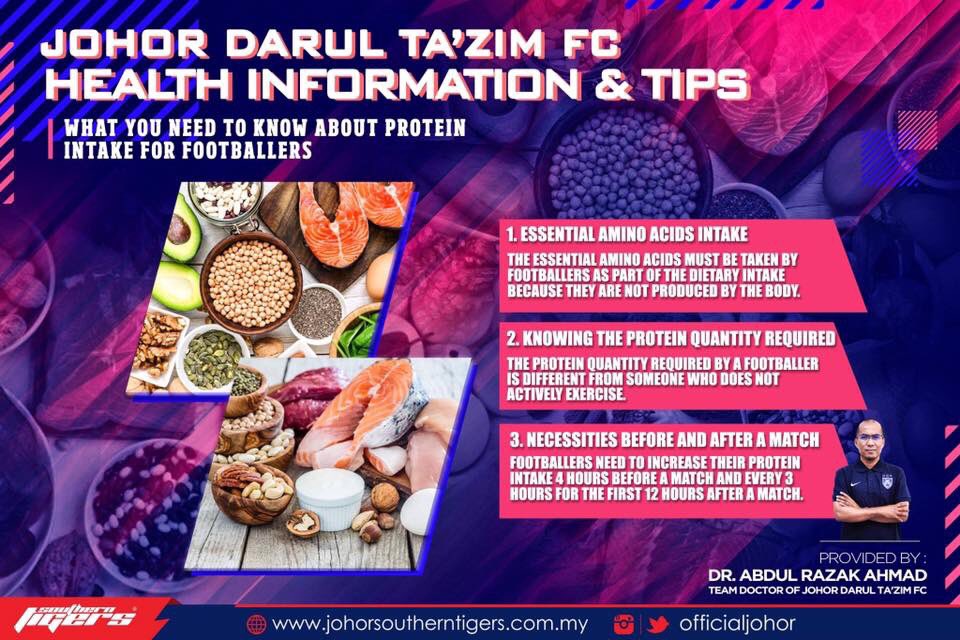Proteins are one of the main nutrients besides carbohydrates. After training or a football match, injured or eliminated body cells need to be replaced immediately. [1/8]
The process of replacing these cells requires protein as building blocks to form new cells. Proteins contain amino acids and a human body needs 20 types of amino acids to function properly.
[2/8]
1. Essential Amino Acids Intake
From the 20 types of amino acids, 9 are not produced by the body. They are known as essential amino acids such as Threonine that makes up Elastin, Collagen and helps in healing.
[3/8]
Meanwhile Tryptophan produces Serotonin that is used by the body to help you feel happy and avoid depression. The essential amino acids must be taken by footballers as part of the dietary intake because they are not produced by the body.
[4/8]
2. Knowing the Protein Quantity Required
The protein quantity required by a footballer is different from someone who does not actively exercise.
[5/8]
For those without an active lifestyle, 0.8g/kg per day is sufficient. But for footballers, the quantity required is between 1.2 - 2.0g/kg per day.
[6/8]
3. Necessities Before and After a Match
Around 4 hours before a match, footballers need to increase their protein intake by 0.25 - 0.4g/kg. The protein taken before a match is used as an amino acid to repair injured cells during the match.
[7/8]
The protein intake after a match is different as footballers need to take as much as 20g every 3 hours for the first 12 hours after a game.
This health information is provided by Dr. Abdul Razak Ahmad, team doctor of Johor Darul Ta'zim FC (JDT). Luaskan Kuasamu Johor.
[8/8]

Ulasan
Catat Ulasan